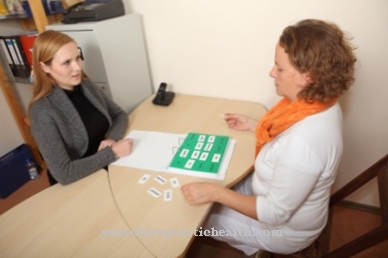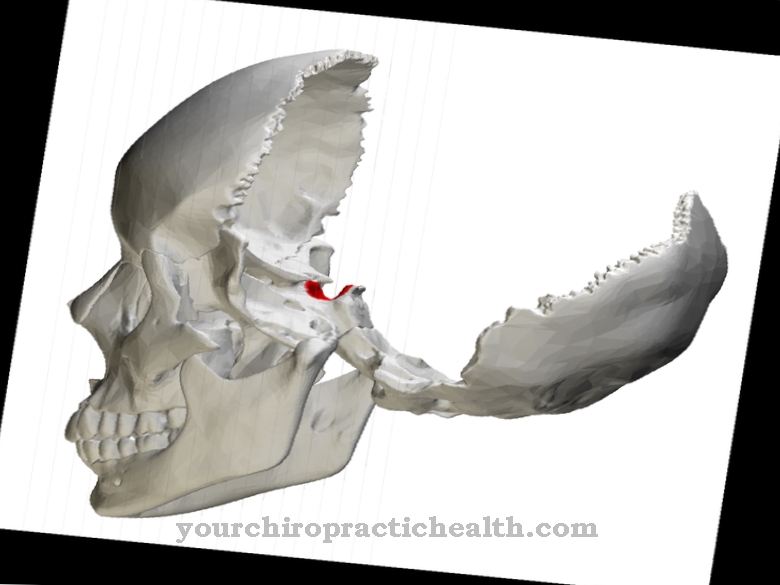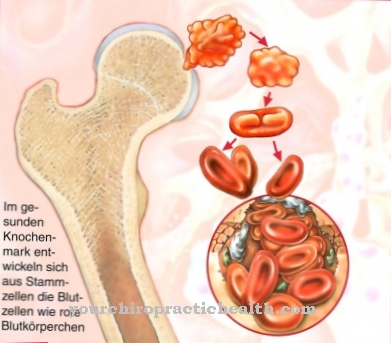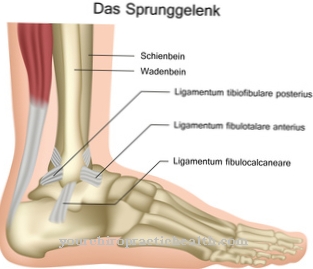The Neuropsychology is a science that combines neuroscience and psychology. As its most common area of application, clinical neuropsychology deals with diseases and abnormalities of the central nervous system, especially the brain.
What is neuropsychology?

One of the sub-areas of neuropsychology is physiological psychology. This deals with the structure and function of the central nervous system and its effects on experience and behavior. One focus is on cognitive processes and perceptual processes. Clinical neuropsychology, on the other hand, deals primarily with diseases of the nervous system and is therefore one of the most prominent fields of application of neuropsychology.
Clinical neuropsychology focuses in particular on diseases of the brain, for example various forms of dementia. As a further subdiscipline of neuropsychology, neurochemopsychology deals with the intersection of neurosciences, (bio) chemistry and psychology. Neurochemopsychology examines the relationships between neurochemical and psychological processes, with a special focus on neurotransmitters (messenger substances between cells). The situation is similar with pharmacopsychology, the subject of which is the effect of drugs and other chemical substances on the psyche and the nervous system.
Treatments & therapies
Neuropsychology researches, diagnoses, and treats a wide variety of diseases that affect the central nervous system. Dementia diseases play a major role in clinical neuropsychology. In Alzheimer's dementia, for example, specific impairments of cognitive functions occur. They mainly affect short-term memory as well as temporal and spatial orientation: the person concerned does not remember recent events or has difficulty remembering recent events, loses their sense of time, cannot correctly name the date or does not know where they are.
Depending on the severity of Alzheimer's dementia, these symptoms can vary in severity. The impairment is caused by the death of nerve cells in a certain part of the brain, the entorhinal cortex. Another condition that neuropsychology studies and treats is learning disorder in children. A learning disorder is present when the child shows significant deficits in reading, writing and / or arithmetic that cannot be explained by below-average intelligence or inadequate schooling.
Depending on which skill cannot be learned or is difficult to learn, the learning disorder is referred to as dyslexia (impairment of reading), dyscalculia (impairment of arithmetic) or dysgraphia (impairment of writing). In addition, clinical neuropsychology deals with a variety of different disorders of memory and consciousness, language, action execution and orientation. In many cases, treatment is interdisciplinary. In the case of some diseases, for example Alzheimer's dementia, it is not possible to restore the original cognitive performance.
In these cases, treatment is aimed at achieving minor improvements, making it easier to deal with the disease in everyday life and preventing further deterioration or at least slowing down the course of the disease. Other diseases, such as neurological visual disturbances or learning disorders, often have a better prognosis.
You can find your medication here
➔ Medicines to calm down and strengthen nervesDiagnosis & examination methods
One of the most important tasks of clinical neuropsychology is accurate diagnosis. With the help of various psychological tests, neuropsychologists can determine whether a person has a cognitive impairment and what type of impairment it is. These tests are standardized and thus allow an objective assessment. In the above-mentioned learning disorder, the task of neuropsychologists is not only to independently and reliably determine the deficits in the school areas of reading, writing and arithmetic; they must also take into account the intelligence of the child concerned, as well as social and academic circumstances.
Motivational and other problems are also checked in order to rule out a cause other than the learning disorder. One of the most widely used neuropsychological tests is the "mini mental status test", which is also used frequently by doctors. The tested person is first asked for the exact date (year, month, day, weekday) in order to be able to roughly estimate their temporal orientation. Then the test person completes smaller tasks, for example repeating and remembering words, spelling forwards and backwards and naming two objects. These tasks often seem trivial and simple to healthy people; However, people with cognitive impairments have difficulty using these basic skills.
Temporary impairments due to drug consumption and the like can also be recognized. In another neuropsychological test procedure, the "clock test", the test person should first draw the face of an analog clock in a given circle and then draw a specific time. This test is a procedure that is primarily sensitive to Alzheimer's dementia and may even detect deficits if imaging procedures such as magnetic resonance imaging (MRI) do not yet reveal any changes in the test person's brain . The neuropsychological tests are therefore not only an economic, but also a very sensitive measuring instrument that can detect even minor deviations.
In practice, different tests are always combined with one another in order to cover different skill areas and to be able to rule out alternative explanations such as intelligence, motor impairments, motivation and others. In addition, neuropsychology makes use of various imaging methods: Magnetic resonance tomography (MRT), electroencephalography (EEG), magnetoencephalography (MEG) or positron emission tomography (PET) are frequently used. These are able to make the function of the brain visible in order to recognize irregularities.

























.jpg)

.jpg)
